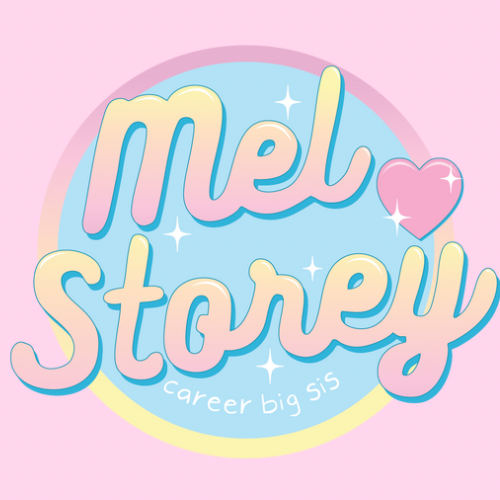Big Sis Briefing: The Bridge Between Generations
There is a quiet shift happening across the legal profession.
You can feel it in conversations about burnout, leadership and culture. You can see it in how younger lawyers question systems that older generations once accepted as inevitable.
In many workplaces, that friction is growing louder.
The Middle Ground
As a middle millennial, I sit between two worlds.
Old enough to remember when being a good lawyer meant outlasting everyone else. Young enough to see the value in balance, emotional regulation and psychological safety.
It feels like standing between two sides of a courtroom, each arguing from lived experience. Both believe they are right. Both are defending truths that shaped them.
Older generations were trained in systems that rewarded endurance and silence. They pushed through exhaustion, tolerated bullying and learned that resilience meant never complaining. Many built entire careers without ever hearing the term "psychological safety." They accepted harshness because they believed they had no choice.
Younger generations grew up with awareness, language and access to information. They value boundaries, transparency and wellbeing. They want meaning and flexibility. But awareness is not the same as wisdom. True mastery takes time and lived experience cannot be downloaded.
Both sides want the same thing. They just define it differently.
What's Really Changing
We are witnessing the same cultural shift that happened when physical safety became non-negotiable.
There was a time when wearing PPE or reporting a hazard was seen as weakness. Toughness was rewarded. Now, no one questions it. You protect yourself and those around you because it is the standard.
Psychological safety is the next frontier. It is the evolution from protecting our bodies to protecting our minds.
And just like before, there are people saying the new generation is soft.
They said the same thing when hard hats became mandatory.
The truth is simpler: people are not softer. They are no longer willing to normalise harm as the cost of belonging.
The Role of HR and Legal
Many people assume HR just protects leadership. Some do. But many are as trapped in the system as everyone else. They see what is happening. They have the hard conversations behind closed doors. They often burn out trying to make change in organisations that do not empower them to.
The same tension sits with in house lawyers.
We are the moral and ethical compass of the business, balancing law, risk and human behavior. Psychosocial safety laws have made this work more complex. We now operate at the intersection of compliance and compassion.
It means asking not just whether something is lawful but whether it is right.
It means holding leaders accountable for how their decisions affect people's wellbeing and not just profit margins.
It means protecting others while also protecting ourselves from the same cultural patterns we are trying to change.
Gentle Managing and Shared Responsibility
I wrote recently about the idea of "gentle managing." It is the quiet work of leading with empathy while maintaining standards. Knowing when to push and when to pause. Choosing to model a new kind of professionalism that values both results and humanity. Often, without a strong pool of examples to pull from.
But real change requires compromise from both sides.
Older generations need to reimagine what leadership looks like. They need to accept that what they endured was not always fair and it does not need to be repeated.
Younger generations need to understand that mastery takes time and experience. They need to listen with humility and learn from those who have already been through the fire.
The Common Ground
Most of us want the same things at work.
Camaraderie. Purpose. Reward for effort. To do work that matters, with people who respect us and in environments that do not destroy our health.
That requires systems that protect people instead of exploiting them. Workplaces that see humanity as an advantage and not a liability.
We cannot heal a profession by standing on opposite sides of the debate. We have to build a bridge and walk across it together.
Older generations bring wisdom and endurance. Younger generations bring awareness and vision. Both are needed to move us forward.
Psychological safety will one day be as normal as physical safety. We are still in the uncomfortable middle, but progress is happening.
This is the real work and it is well overdue. I want to hold space (millennial for ‘facilitate’) hard conversations and tackle the issues head on.
Onwards!
Mel 💖
~~~
If You’re Experiencing Bullying or Harassment at Work
If any of this feels close to home, please know you do not have to navigate it alone.
Support is available and reaching out early is a sign of strength, not weakness.
Here are some places to start:
Employee Assistance Program (EAP): Most legal workplaces offer confidential counselling at no cost to you.
LawCare and Wellbeing Services: Check your state or territory Law Society website for confidential mental health support lines and lawyer-specific wellbeing programs.
Ethics and Conduct Counselors: Many Law Societies offer free, confidential guidance on professional conduct and workplace ethics.
Your GP or Psychologist: Book a “check-up from the neck up.” A mental health care plan can make counselling more affordable.
Beyond Blue (1300 22 4636) and Lifeline (13 11 14): Both are available 24/7 for confidential support.
Investing in your wellbeing is not a luxury. It is an act of professionalism.

